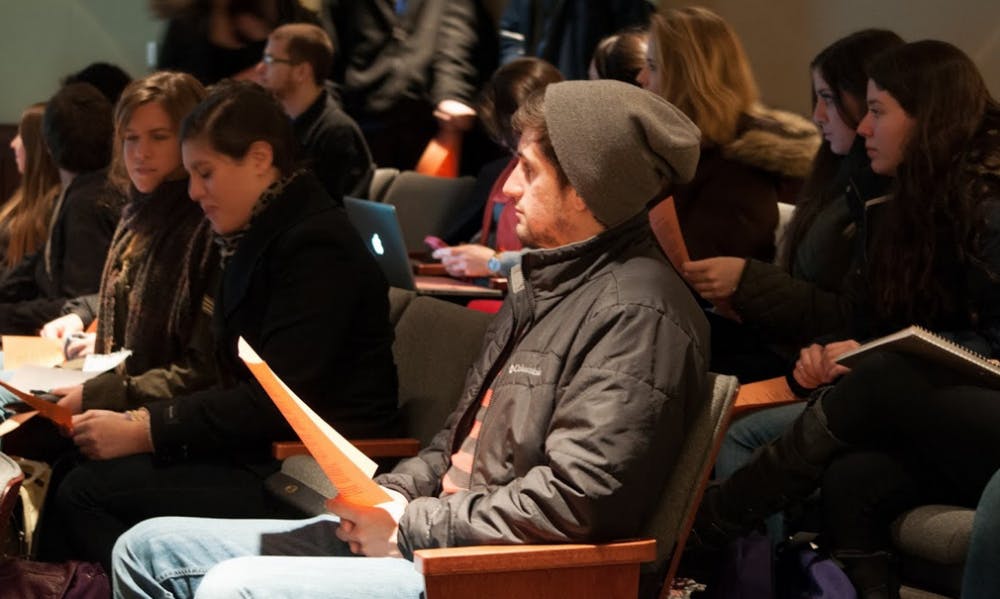It is not like Occupy Wall Street. It is not like the Arab Spring. The revolution happening in Ukraine, according to Ukrainian professor Mychailo Wynnyckyj, is a revolution of the middle class, comprised of students and highly educated people.
“This is a pretty unique thing that’s going on, and I think it’s really something that is pretty difficult to get a handle on because there’s nothing to compare it to,” Wynnyckyj said.
Via webcam, seven panelists, including three Ukrainian student activists and an American Fulbright scholar, discussed the ongoing revolution with about 100 of the College’s students during the Politics Forum, “Ukraine: What Are They Fighting For?” on Thursday, Feb. 6.
“The Russian government appears to be hindering the progress of closer Ukrainian ties with the West. Ukraine finds itself in a sensitive position geographically and historically between the European Union and the Russian Federation,” Center for Global Engagement director Jon Stauff said.
He said this ongoing revolution can be compared to “what happened in 1776 in the American colonies to drive leaders to draft the Declaration of Independence.”
But what started out as a peaceful, political demonstration quickly led to a more violent revolution about human rights and dignity.
“The regime decided that they didn’t like this idea of protest on the streets, so they called in riot police and the students were beaten rather brutally,” Wynnyckyj said. “The next morning, a lot of people in this country were in a state of shock. Exactly 36 hours after these attacks, we had anywhere from 500,000 to one million people demonstrating on the streets saying this is wrong.”
Since then, the regime has passed strict laws, including one that prohibits groups of more than 10 people to gather at a time. People are hunted down on the streets, people disappear and activists’ cars are burned, according to Wynnyckyj.
Ukrainian student activist Stepan Berko said what originally motivated him to join the movement was a failed government effort to create stronger ties with the West and, moreover, that something had to be done about it.
“We actually believed that we could influence the government, so our goal was to go on the streets with as many people as possible and show the will of the country,” Berko said. “And then later, after the students were beaten, we shifted to showing ... that we want to live in a democratic society, where people are not beaten by riot police.”
According to freshman secondary education and history double major Tyler Switsky, the forum taught him more about an issue that he was not fully aware was happening in today’s world.
“Americans need to make it a priority to be cognizant of things happening globally,” Switsky said. “I think it’s important that we pay more attention to what’s going on abroad. After seeing students my age feel so passionate about their human rights, the least I can do is be aware of their struggle and what’s occurring abroad.”
Stauff said he wanted the forum to teach students concepts such as citizenship, human rights and democracy and how difficult it is to create a civil society where these can be sustained.
“I hope our students consider participating more actively in their own communities, states and nation by following issues of importance, expressing their opinions to their representatives and participating in the political process at home — even if that means only participating in elections once a year,” Stauff said.







